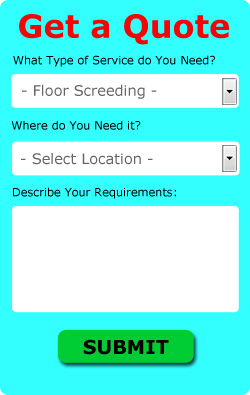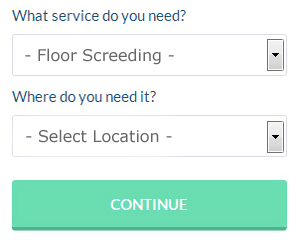Floor Screeding Luton Bedfordshire (LU1): When you are renovating your Luton property with uneven or damaged floors, or maybe converting a basement or cellar to useful living area, an established floor screeding company should be your first port of call. A screed is used to generate a smooth floor surface over a concrete sub-base and give a good foundation for you final flooring material. Floor screeding provides a durable, quality floor surface for any room.
FLOOR SCREEDING EXPERTS LUTON
It matters not how large or small the area you need levelling, an established screeding company in Luton will have the necessary equipment, skills and know-how to give you an outstanding standard of service. They will be ready to advise you about the correct kind of screed that your project requires, and the best methods for applying and installing it.
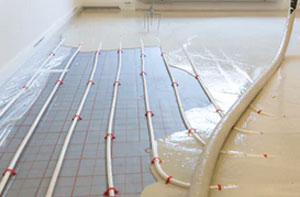
It might be necessary, depending on the proposed use of the area, for a structural engineering survey to abide by building regulations on flex strength, point loadings and load bearing of the screed floor.
Bringing in a skilled and highly trained flooring specialist will guarantee you get the proper kind of screed for the room's intended purpose and get the optimum lifespan out of your flooring. There are many types of floor screeding and selecting the appropriate mix and laying method is vital if you are to achieve a quality floor that is both fit for purpose and long-lasting.
There are numerous screeding specialists in and around Luton so try to get multiple quotes for your floor screeding project before choosing a contractor and know to what standard of finish it's for. For domestic properties a quotation will normally be provided for a Surface Regularity (SR) level of SR1 or SR2. SR2 and SR3 may be cheaper options, however the floor screeding finish could have deviations and errors, whilst SR1 guarantees a perfect finish. An SR2 or SR3 standard could mean there will be flat spots or ridges that could cause issues when installing your final floor surface.
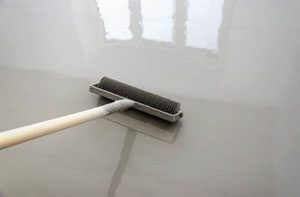
British Standards BS8204 sets down the regulations and guidelines that all Luton screeding companies are required to follow, and if working with specialist screeding solutions, (Gypsol, Flowcrete, Cemfloor etc), they must be approved by the manufacturers as being skilled and trained in their use. This accreditation scheme highlights a contractor's ability and training in the application of a manufacturer's product.
Commercial screeders in Luton will probably tackle floor screeding projects in hospitals, shops, schools, factories, pubs and warehouses.
TYPES OF SCREED
Standard Screeds - This is perfect for normal residential use and comprises a mixture of sand and cement. The standard screed is a mix of 5 parts sand to one of cement. The standard screed dries at a rate of one millimetre thickness each day.
Industrial and Heavy Duty Screed - Where levels of traffic are expected to be high or heavy loading on the floor is needed, heavy duty screeds provide maximum strength and durability.
Fibre Reinforced Screed - The expert's choice for domestic use on top of underfloor heating. This is due to the improved durability and protection against thermal shrinkage and cracking offered by the special fibres within the screed mix. At about one millimetre per day, it has a similar drying rate to standard floor screed.
Liquid or Self-Levelling Screeds - Used to produce the highest quality of finish, especially in SR1 levels of screeding, by a cement and latex compound. This self-levelling compound provides a smooth and clean surface over a damaged floor or rough substrate to allow all flooring materials to be laid. These can be as little as 1mm in depth, and thanks to the latex polymers, will still provide high strength.
Polymer Screeds - These provide a high level of strength with a minimal thickness. Polymer screeds are made by many screed manufacturers and because of their diverse chemical compositions have distinct curing times for each product.
Advanced Drying and Fast Drying Screeds - If you need to use the floor as quickly as possible a fast drying screed can be used. These are normally a fibre reinforced screed that dries out at a rate of between three and seven millimetres per day and are employed in time-sensitive flooring projects.
SCREEDING PREPARATION AND INSTALLATION
Screeding installers will need to fully prepare all areas before proceeding with any other work in order to guarantee a hard wearing and quality screed flooring. It's crucial that all contaminants such as grease, oil, debris or paint is eradicated from the floor surface before laying any screed, because these can affect the bonding capability that a good quality floor screed demands.
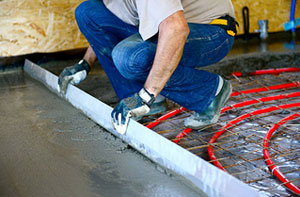
If any products are used in this process it's crucial to ensure that no residues of soaps or other cleaning products are left on the floor surface and it's permitted to dry out naturally. At this point any cracks should be repaired because these can easily travel up through the laid screed and be reflected in the completed surface. An experienced Luton screeding contractor will pick up on these problems during the on-site survey and ensure that all preparations are completed before pressing on with the next stages of the screeding process.
Before any screeding can be laid a DPM (damp proof membrane) must be put down to protect the final flooring and screed from dampness. Different thicknesses of polythene sheeting may be used as a DPM and also act as a barrier for the screed and any insulation material.
If your house is situated in a place where radon gas is present an extra barrier layer is essential to stop radon gas from getting through. If radon gas occurs in large amounts then a complete ventilation and extraction system may be installed underneath the layer of screed which will remove any gases that might seep in from the ground.
As soon as these stages have been completed the screeders will put on a primer or sealer to the prepared base surface. These primers and sealers will ensure that the screed bonds successfully to the base surface and help produce a high quality finished floor. Devices such as airless sprays are used to apply a primer or sealant, by experienced screeding companies in Luton following the manufacturer's guidelines.
This is the time that under floor heating can be installed and laid out in the correct way. The heating pipes and wires are securely mounted on insulation panels to stop any movement and ensure they're laid in the correct position. Underfloor heating is one of the most effective ways to heat a room and a professionally installed system should produce even level of warmth in all areas of the floor.
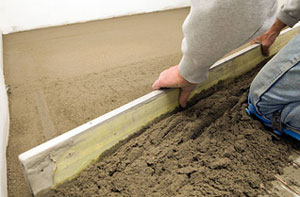
Of course, if you are not installing under floor heating, you can skip this step and apply the floor screed. Your screeding specialist will have given you advice and guidance on which sort of screed is appropriate for your requirements, in line with your proposed use of the room. After the pouring of the screed there'll be a minimum 24 hours (for advanced and quick drying screeds) before you can walk on the surface, and a 72 hours minimum curing time before the laying of any flooring materials. This time period is longer for heavy duty and standard screeds and the manufacture's guidelines should be followed to create the best finish and durability of the floor.
You can check the SR level of the finished screed once it's hard enough to walk on. The standard SR test uses a 2 metre straight edge to check for any deviations in the floor surface.
- SR1 - SR1 is the best quality and allows only three millimetres of disparity from the straight-edge.
- SR2 - If the screeded surface has a deviation from the straight-edge of 5mm or less it is considered SR2 quality and is the standard for commercial and industrial floors.
- SR3 - SR3 is basic utility standard where a perfect finish isn't required. This level can have a maximum permissible deviation of ten millimetres.
It might also be necessary for a structural engineer to carry out a soundness test. The assessment will ensure your newly laid screeding is viable for the load bearing requirements specified in the site survey. This can include a drop hammer test which assesses various aspects of the flexibility and strength of the screed. Only certified structural engineers applying the British Standards BS8204 guidelines are permitted to conduct such tests and sign off on the structural safety of the screeding. (Tags: Screeding Luton, Floor Screed Luton, Floor Screeding Services Luton, Floor Screeding Luton).
Floor screeding is available in Luton and also in: Wigmore, Dunstable, Slip End, Round Green, Sundon Park, Pepperstock, Caddington, Lilley, Offley, Leasgrave, Leagrave Marsh, Chaul End, Streatley, Stopsley, Winch Hill, Aley Green, Markyate, Biscot, and in these postcodes LU1 1QF, LU1 1HT, LU1 1RE, LU1 1DL, LU1 1QE, LU1 1RY, LU1 1PE, LU1 1JF, LU1 1XA, and LU1 1NR. Local Luton floor screeders will most likely have the dialling code 01582 and the postcode LU1. Checking this out should make sure that you access locally based floor screeding. Luton property owners are able to utilise these and countless other related services. To get quotations for floor screeding, just click the "Quote" banner.
The Tools Needed for Screeding Floors
- Wheelbarrow
- Knee Protection
- Straight Edge
- Heavy Duty Spirit Level
- Shovel
- Floor Profile
- Spiked Roller
- Float
- Measure
- Trowel
- Gloves
Related Tasks

There is a variety of work that can be accomplished by your local Luton floor screeding specialist including cheap screeding, underfloor heating installation in Luton, fast-dry screeds in Luton, rapid strength floor screeds, liquid screeds, factory floor screeding, floor screeding in Luton, acoustic flooring, basement floor screeding, floor screeding tools, floor levelling, floor renovation in Luton, garage screeding, screed repairs, concrete pumping Luton, screeding price quotes, conservatory floor screeding, floor insulation, and lots more floor screeding tasks.
Floor Screeding Near Luton
Also find: Offley floor screeding, Streatley floor screeding, Dunstable floor screeding, Biscot floor screeding, Leasgrave floor screeding, Pepperstock floor screeding, Wigmore floor screeding, Lilley floor screeding, Sundon Park floor screeding, Stopsley floor screeding, Chaul End floor screeding, Aley Green floor screeding, Leagrave Marsh floor screeding, Caddington floor screeding, Slip End floor screeding, Winch Hill floor screeding, Round Green floor screeding, Markyate floor screeding and more. All of these locations are covered by firms who do screeding. These professionals, with their necessary know-how and expertise, excel in providing the best quality screeding solutions. For both residential and commercial properties, their expertise in screeding guarantees that the work is carried out to the best possible standards. Local home and business owners can obtain screeding quotations by clicking here.
Floor Screeding Services Luton
- Luton Screed Calculator Service
- Luton Floor Levelling
- Luton Fast-Dry Screeding
- Luton Industrial Screeding
- Luton Fibre Reinforced Floor Screeding
- Luton Floor Screeding
- Luton Underfloor Heating Installations
- Luton Floor Screeding Advice
- Luton Screeding Services
- Luton Cheap Screeding
- Luton Floor Damp Proofing
- Luton Floor Insulation
- Luton Liquid Screeds
- Luton Residential Screeding
Other Useful Trades in Luton Bedfordshire

Obviously, when you happen to be doing home repairs and improvements in Luton, Bedfordshire, you will probably need all kinds of different tradesmen and together with a floor screeder in Luton, Bedfordshire, you could also need a carpenter in Luton, linoleum flooring in Luton, a floor tiler in Luton, a plasterer in Luton, an electrician in Luton, a bricklayer in Luton, a handyman in Luton, a plumber in Luton, a carpet fitter in Luton, an underfloor heating specialist in Luton, wood flooring in Luton, waste removal in Luton, a building contractor in Luton, a heating engineer in Luton, and other different Luton tradesmen.
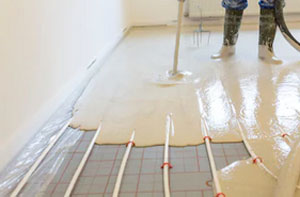 Floor Screeding Luton
Floor Screeding Luton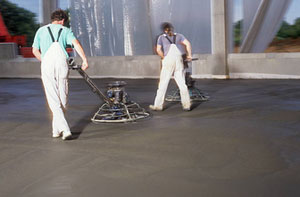 Screeding Near Me
Screeding Near Me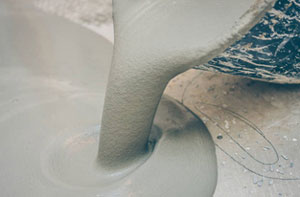 Floor Screeders Luton
Floor Screeders LutonLuton Bedfordshire: The massive town of Luton is located in the county of Bedfordshire in the Eastern district of Great Britain. Luton is about 28 miles from Bedford and 34 miles from Central London, neighbouring places include Lilley, Chaul End, Aley Green, Winch Hill, Caddington, Sundon Park and Biscot. Luton has the telephone dialling code 01582, has the postcode LU1 and has a population of around 215,000. Luton's airport opened for flights on the 16th July 1938 and is one of the biggest airports in the UK. (Tags: Luton Bedfordshire, Luton England, Luton United Kingdom, Luton Beds)
More: Screed Flooring, Screeding, Coloured Screeding, Floor Levelling Services, Floor Screeders, Screeding, Decorative Screeding, Floor Levelling Services, Floor Levelling Services, Screeding Specialists, Polished Screeding, Commercial Screeding, Screeding, Floor Levelling, Screed Reinforcement, Floor Screeders, Screed Reinforcement, Screeding, Floor Screeders, Cheap Screeding, Screeding, Screeding Companies, Screeding Services, Cheap Floor Screeding, Coloured Screeding, Floor Levelling Services, Floor Levelling Services, Screeding Companies, Self-Levelling Screeds, Flooring Contractors, Floor Levelling, Floor Screeders, Floor Screeding, Floor Levelling, Driveway Installers, Driveway Experts, Driveway Installers.
Floor screeding in LU1 area, 01582.

